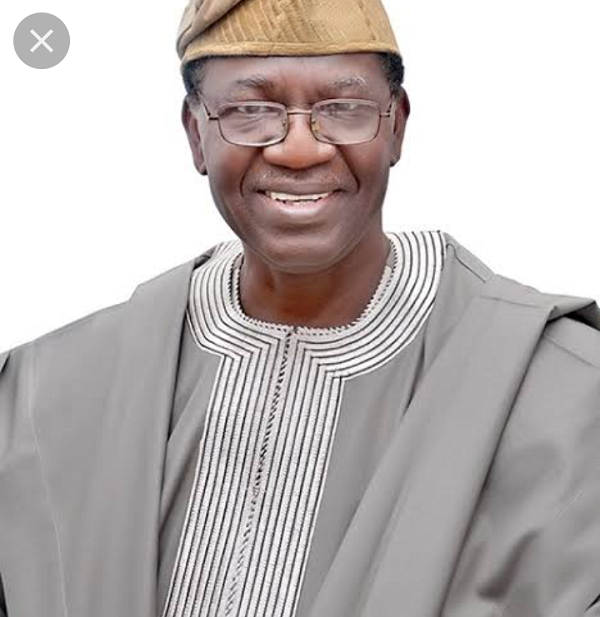-By Omowunmi Iledare
One of the key observations, I made about 9 months ago before PIB 2020 became PIA 2021, is that the petroleum downstream sector in Nigeria is a hybrid system; and to a large extent there is no economic model to appropriately define the market clearing price to ensure consumer surplus and producer surplus under a pareto optimality condition in Nigeria. Thus, removing or not removing petroleum subsidy at the pump lingers and literarily became a burden to petroleum political economy.
The impediment to subsidy removal in Nigeria is exacerbated because of low refining capacity and institutional barrier to entry in the wholesale market with significant monopoly power. Ironically, the institutional barrier in the PMS product wholesale segment is, of course and to a large extent, because of the prevailing circumstances of limited foreign exchange earnings and political economy of oil. Consequently, pricing petroleum products at the distribution end in Nigeria, which features a very many small sellers with guaranteed margins despite minimum risked investments over the years, has produced extensive social welfare losses.
Regrettably, however, many consumers seem to not want to appreciate the extent of the social welfare loss in the system with the marginal social benefit of price control at the pump being significantly less than the marginal social cost with other seemingly obvious unintended consequences. These glaring unintended consequences in include but not limited to, funding inadequacies for priority projects, crowding out investors in capital funding competition in the downstream sector, and unmanageable and volatile FOREX market.
Price regulation using coercive power of government to ameliorate unsubstantiated fear of social unrest is like riding on the back of the tiger with posterity implications. Let me espouse again the plausibility that the prevailing high misery index in terms of the combination effects of high inflation, high unemployment, high exchange rate is statically correlated, over the years, with the enormous amount of money spent to subsidize petroleum product consumption at the pump. So, what is the way out of this perpetual unsustainable petroleum subsidy path and be guided correctly along the optimal path to an effective and efficient petroleum pricing system at the pump for posterity? I believe the Petroleum Industry Act 2021 offers a glimpse of that pathway to effective regulation in the very clear specificity of its first objective. The relevant objective to price deregulation in the PIA is the creation of an efficient and effective governance institutions, with clear and separate roles for petroleum industry.
Certainly, with PIA, ceteris paribus, subsidy removal would not only lessen fiscal budget debt financing, but it will also reduce drastically, FOREX volatility with less pressure from petroleum import demand on FOREX and in the long run encourages competitive pricing at the pump. Nigeria cannot continue to do what has not work and get different results. This then explains why PIA 2021 established the Nigerian Midstream and Downstream Petroleum Regulatory Authority (the Authority), and scrapped the Petroleum Pricing Regulatory Authority (PPRA, The Department of petroleum Resources (DPR), and the Petroleum Equalization Fund (PEF).
According to Section 29 (3), the authority shall be responsible for the technical and commercial regulations of midstream and downstream operations in the petroleum industry. Of course, I am not a lawyer, but I do not see how price control and subsidy payment fit into commercial regulations. Interestingly too, Section 31(d) specifies one object of the and function of the Authority as being to promote a competitive market for midstream and downstream operations, which literarily means, in my opinion, no subsidy payment policy payment is executable by the authority, because such policy is anticompetitive and inconsistent with the provision of PIA Act according to Section 31 (m). In fact, the closest to anything pricing and costing in the PIA is the responsibility of the Authority to provide pricing and tariff frameworks based on a fair market value and not set or dictate prices and tariffs or pay subsidy according to Section 32 (e, f) of the PIA.
Finally, I understand that not all things that are lawful, are necessarily beneficial, because of the prevailing leadership mindsets in political institutions, which could either be transactional or transformational. Thus, there are those who will argue that if PIA 2021 is implemented within the context of petroleum price deregulation, there is going to be societal misfortunes—diminished energy access and affordability in terms of multidimension energy poverty index (MEPI, rising public transport fares, disproportionate income redistribution among the poor, inflation, and public discontentment. But the paradox of petroleum subsidies arising from price control at the pumps is evident. There seems to be a preference, over the years, to burn cheap fuel on debilitated road infrastructure than to spend money on education, health, and science and technology, combined in the aggregate.
Nevertheless, the benefits of deregulation far out way the highlighted misfortunes above in the long run. Political expediency trumping economic efficiency and effectiveness must not render PIA helpless in this debate. Therefore, public education is key and critical to facilitate good understanding of the merit and demerits of price control and the inevitability of expanding social welfare loss in the long run if business as usual is espoused for political expediency. PIA 2021 offers an excellent roadmap and flaunting or misinterpreting PIA 2021 provisions for transactional prosperity optimization rather maximizing the benefits of deregulation for posterity is not the pathway to follow. One key object of the PIA is to create a competitive downstream market that enhances the petroleum value chain in Nigeria and subsidy payment is too anticompetitive to coexist with the aggregate PIA 2021 objectives.
Omowunmi Iledare, PhD (GNPC Professor & Chair in Petroleum Economics)
Source: The ValueChain


Comment here